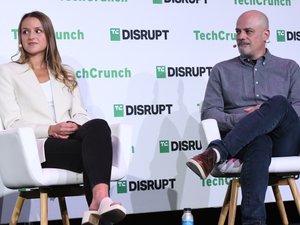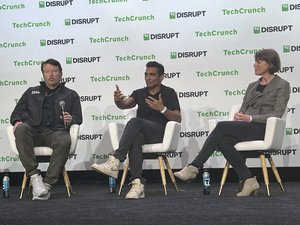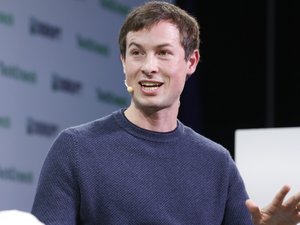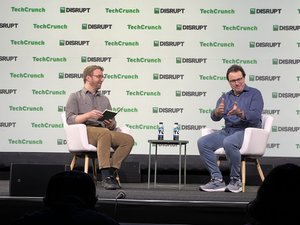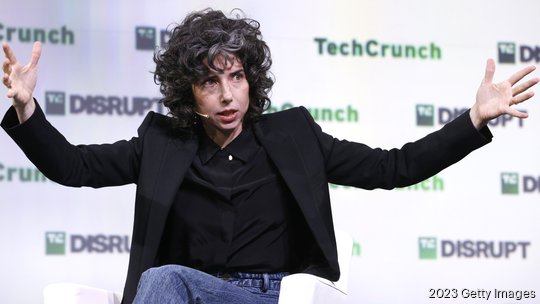
To artificial intelligence expert Meredith Whittaker, the term "AI" as it's used today is largely just a marketing ploy — and one that's being used by the most powerful tech companies for insidious purposes.
What's called AI is really just a collection machine learning techniques controlled by those handful of corporate giants, Whittaker, a former AI researcher at Alphabet Inc., said Thursday in an on-stage appearance at TechCrunch's Disrupt event in San Francisco. Those companies are using it to expand and extend their power at the expense of everyday people, she warned at the gathering at Moscone Center.
"What we're talking about is a rebranding of monopoly power as intelligence," said Whittaker, now the president of Signal Messenger LLC, the Mountain View nonprofit behind the eponymous encrypted messaging service. "And we're talking about allowing that extremely powerful narrative of intelligence to propel these corporate monopolies into the hearts of our lives and institutions even further, making decisions and predictions that are shaping our access to resources, shaping whether we will have a job."
Indeed the undermining of labor and workers is central to the "artificial intelligence" project, Whittaker said. The tycoons who run the tech titans want to be able to use these machine learning techniques to replace the work of highly skilled, highly paid labor, she said.
And that's not some far-off concern. AI could replace up to 300 million full-time jobs, Goldman Sachs said in a report this spring. Meanwhile, nearly a third of respondents to PricewaterhouseCoopers's annual global workforce survey last year said they were worried about their roles being replaced by technology in the next three years.
That same concern is a central issue in the Hollywood writers and actors strike, Whittaker noted. AI has already made inroads writers rooms and film lots. Scriptwriters and actors are demanding in negotiations that the studios not replace them with AI.
"There's a real fight happening," she said. "We're actually seeing people take this into their own hands and say, 'Absolutely not,'" she continued. "'You're not sucking up all of human culture and then putting the people who created that out of a job so that we can have low-grade content on our weird streaming platforms.'"
Whittaker helped lead the Google walkout
Whittaker is no stranger to challenging the tech giants on their treatment of everyday workers. While at Google, she helped organize the 20,000-employee walkout in 2018 that protested the company's handling of sexual harassment allegations against male managers and leaders. She left the company the following year, charging that the search giant retaliated against her and other protest organizers.
She's not the only one whose been raising alarms about artificial intelligence. Some of the burgeoning industry's most prominent figures have raised concerns about the technology and called for new rules to guide its development. Last week, 22 of the most powerful players in AI — including Tesla Inc. CEO Elon Musk, Meta Platforms Inc. CEO Mark Zuckerberg, Microsoft Corp. CEO Satya Nadella, Google LLC CEO Sundar Pichai, OpenAI LLC CEO Sam Altman and Nvidia Corp. CEO Jensen Huang — attended the first of nine planned meetings held by the U.S. Senate to discuss regulating the technology.
But much of the concern raised by such figures has been about the potentially existential threat AI could pose to humanity or how it could be used to spread misinformation that could undermine democracy — not necessarily about the harm it could do to workers. The tech leaders' closed-door meeting with Congress raises the concern that the same people who want to use AI to help cut labor costs will be writing the rules that will govern the technology, Whittaker said.
That's what makes the writers and actors strike important. It's part of a larger and broader battle over not just whether to regulate the technology but how to do it so that the rules benefit more than just the tech companies, she said.
"We're not waiting for politicians who want a photo with Sam Altman to make a decision about a new regulatory agency or whatever," Whittaker said. Speaking to those in audience, she continued by urging them "to step up and be part of that fight unless you want to be on the other side."

